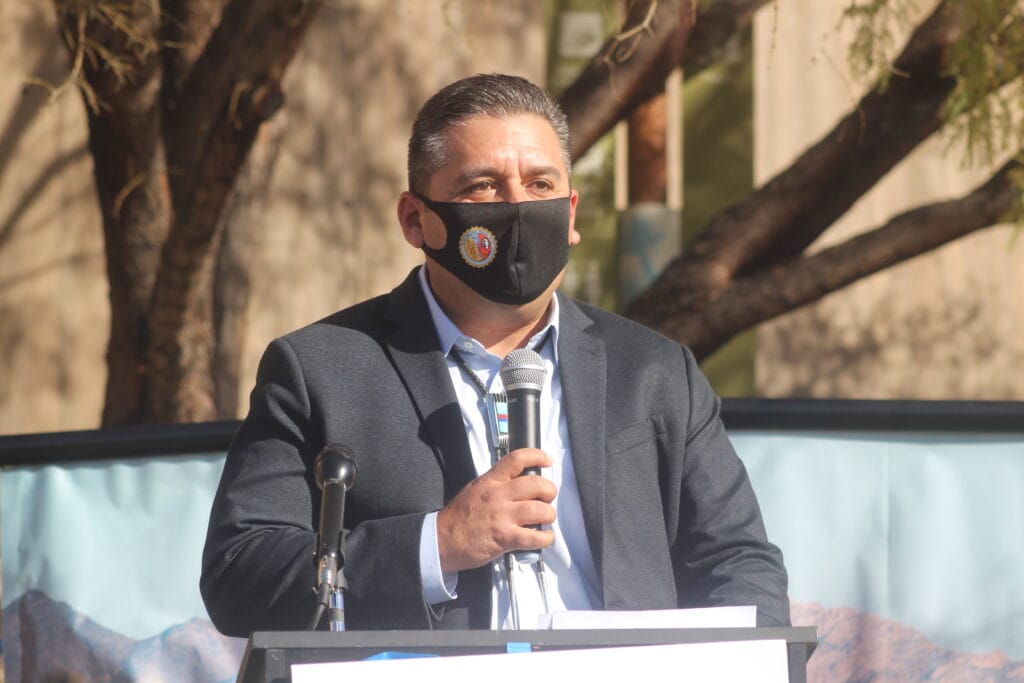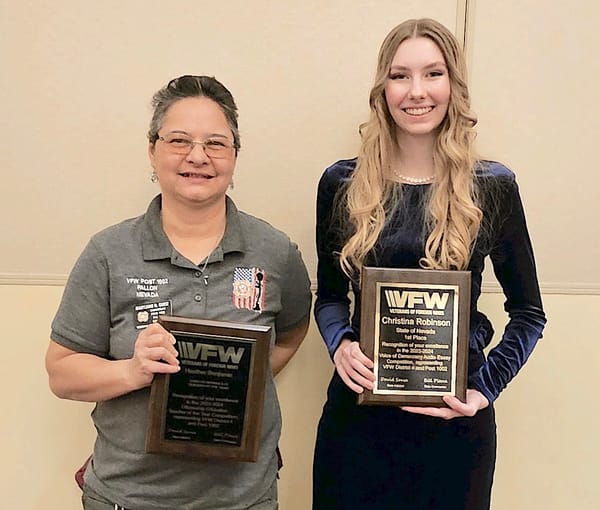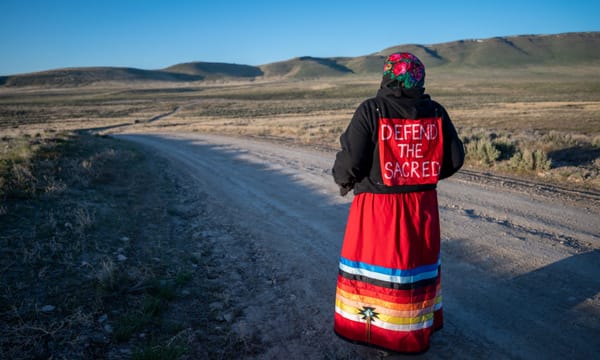Tribe one step closer to permanent protection of sacred site

by Jeniffer Solis, Nevada Current
January 18, 2022
LAS VEGAS–The Fort Mojave Indian Tribe is one step closer to permanently protecting a sacred swath of land in Nevada after gaining congressional support to designate the landscape as a National Monument.
Last week, Nevada Rep. Dina Titus sent a letter to Interior Secretary Deb Haaland announcing her intention to write a bill to designate Spirit Mountain — or Avi Kwa Ame in Mojave— as Nevada’s fourth national monument.
In the letter Titus said she has been working with the Nevada State Director for the Bureau of Land Management to produce a map of the proposed monument. Titus added the legislation was made possible through a “robust coalition” of tribes and local communities, including Clark County, Boulder City, Searchlight and Laughlin.
In recent years the culturally significant area has been threatened by development, including proposed wind farms and growing neighboring towns. But a national monument designation for Avi Kwa Ame would permanently protect nearly 400,000 acres south of Las Vegas from large-scale development.
More than 80% of the land within the proposed monument is already federally protected as critical habitat. However, the designation would connect existing protected landscapes from the East Mojave Desert to the Lake Mead National Recreation Area and strengthen protections to the area.
Several tribes support for the national monument designation. Avi Kwa Ame is considered culturally significant and sacred by Yuman-speaking peoples, including the Mojave, Hualapai, Yavapai, Havasupai, Quechan, Maricopa, Pai Pai, Halchidhoma, Cocopah and Kumeyaay.
The area is an important part of the Nevada based Fort Mojave Indian Tribe’s spiritual ideology and is featured in Mojave creation beliefs. In 2019, the Fort Mojave Indian Council voted unanimously to formally support the protection of the Avi Kwa Ame.
“Tribes have consistently articulated that any industrial project in this area is not culturally or environmentally appropriate,” wrote Chair of the Fort Mojave Indian Tribe Timothy Williams, in a letter to the Nevada congressional delegation at the time.
Both the Chemehuevi Indian Tribe and the Inter-Tribal Council of Nevada also adopted resolutions in 2021 supporting the monument, and last year the Moapa Band of Paiutes in Nevada sent a letter of support for the monument to Nevada Sen. Catherine Cortez Masto.
Shan Lewis, Vice-Chairman of the Fort Mojave Indian Tribe for nearly 20 years, said the tribe has been fighting for the protection of Avi Kwa Ame long before his time in leadership.
“It’s always been a priority of the tribe for as long as I can remember because it’s so important to our creation story,” Lewis said. “I’ve heard stories from my elders about fighting for the protection of the area for many, many years before me. It’s been a lot longer than people realize.”
After a long legal battle, the tribe was able to get Avi Kwa Ame listed on the National Park Service’s National Register of Historic Places as a traditional cultural property in 1999.
Legislation to designate Avi Kwa Ame is a significant tool that will further protect of the area, said Lewis, and will allow the tribe to inform more people and congressional members about the importance of the land.
“We’re getting a lot of support for this project, more than you usually see,” Lewis said. “Typically, there’s a battle going on between different organizations or cities or towns, but it seems like this is really coming together.”
In recent years, tribal members have gained support from conservation groups to highlight Indigenous perspectives on the spiritual significance of Avi Kwa Ame, including being placed at the center of a multimedia story map produced by the Conservation Lands Foundation in partnership with local conservation groups.
“This whole project has been very centered around Indigenous voices and perspectives,” said Taylor Patterson, executive director of the Native Voters Alliance of Nevada.
During a press conference Friday to publicly announce the legislative effort, Titus framed the bill she plans to introduce as a continuation of her work to preserve natural resources, including Gold Butte and Tule Springs Basin national monuments.
Titus also said the legislation was an important step in representing Boulder City, which now falls into her congressional district after redistricting by the Nevada Legislature.
“Our outdoor recreation economy lost about 6% of its jobs and 13.7 million visitors as a result of the pandemic. Tour companies relying on out of state visitors had to cut staff by 70%, so we believe establishing this national monument will help to bolster the outdoor recreation economy,” Titus said, adding that Boulder City is an important gateway community to the proposed national monument.
Rep. Susie Lee joined calls to make Avi Kwa Ame Nevada’s fourth national monument last week. In an interview, Titus said she believes Lee and Rep. Steven Horsford will sign onto her legislation.
“But we’d like to see something happen on the Senate side, maybe a companion bill,” Titus said. “That’s my job to do now.”
Titus said she is optimistic that Haaland will join her in supporting the designation, and has invited her to return to Nevada to visit the area and meet with monument supporters..
In a survey commissioned by Battle Born Collective, a conservation group, even though eight in ten Nevada voters had not heard about Avi Kwa Ame, once provided information about the site, 62% of respondents said they supported a national monument designation.
Nevada Current is part of States Newsroom, a network of news bureaus supported by grants and a coalition of donors as a 501c(3) public charity. Nevada Current maintains editorial independence. Contact Editor Hugh Jackson for questions: info@nevadacurrent.com. Follow Nevada Current on Facebook and Twitter.






